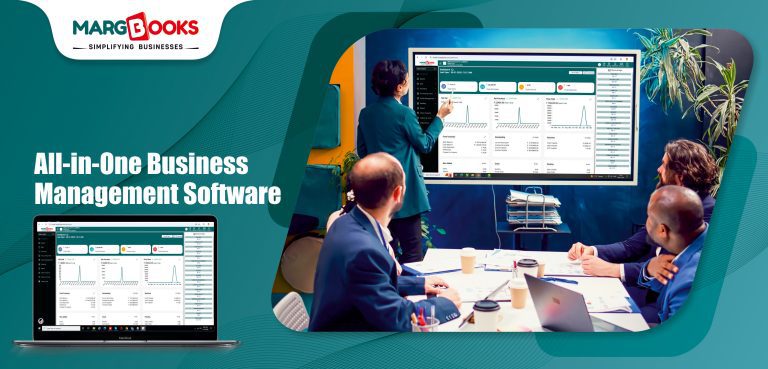In today’s fast-paced business environment, efficiency is the name of the game. Whether you’re a small business owner, a startup founder, or managing a large corporation, staying organized and on top of daily operations can quickly become overwhelming. With multiple departments, tasks, and tools to juggle, the complexity can escalate. Enter the solution: All-in-One Business Management Software.
What is All-in-One Business Management Software?
All-in-One Business Management Software is a comprehensive platform designed to streamline and automate various aspects of business operations. This software integrates different functions such as customer relationship management (CRM), project management, finance, accounting, inventory, human resources (HR), and more, into a single platform. Instead of relying on multiple disjointed systems, an all-in-one solution consolidates everything into one user-friendly interface.
For businesses looking to improve productivity, reduce costs, and enhance collaboration, adopting this type of software can be a game-changer.
Key Benefits of All-in-One Business Management Software
- Improved Efficiency and Productivity
One of the biggest advantages of using all-in-one business management software is the ability to streamline your operations. Instead of switching between multiple software applications to manage various tasks, everything is consolidated into a single platform. For example, your CRM system can directly link to your accounting software, reducing the need for double data entry and ensuring that your financial records are always up to date. This integration minimizes the time spent on repetitive tasks and improves the overall productivity of your team.
- Cost Savings
When businesses use multiple software solutions to manage different aspects of operations, they often pay for several subscriptions, licenses, and support services. Over time, this can add up. With an all-in-one platform, businesses can save money by eliminating the need for multiple tools. A single subscription fee covers all the features, which is usually more cost-effective than subscribing to individual tools for CRM, HR, project management, and more.
- Seamless Collaboration
Collaboration is key to any business’s success. All-in-one software typically includes tools designed to foster teamwork and communication. Features such as file sharing, task management, and real-time collaboration allow your team to stay on the same page regardless of their location. Whether it’s your sales, marketing, or customer service team, everyone can easily access the information they need and work together in a unified environment.
- Data Consistency and Accuracy
When data is entered into multiple systems, there’s always the risk of errors and discrepancies. With an integrated business management platform, all data is stored in one place and updated in real-time across the system. This ensures data consistency and eliminates the possibility of human error when transferring data between different tools. Accurate data is crucial for decision-making, financial reporting, and customer satisfaction.
- Scalability and Flexibility
As your business grows, so do your needs. All-in-one software is designed to be scalable, meaning it can adapt to your changing requirements. Whether you’re expanding your team, introducing new products, or entering new markets, the software can accommodate these shifts without the need for a complete overhaul of your existing systems. Many all-in-one solutions offer customization options, allowing businesses to tailor the platform to their specific needs.
- Centralized Reporting and Analytics
Having a clear overview of your business performance is essential for making informed decisions. All-in-one software typically comes with robust reporting and analytics features, giving you access to real-time data across all departments. From financial reports to sales performance and employee productivity, you can track everything from a single dashboard. This centralized approach allows business leaders to quickly identify areas of improvement and capitalize on opportunities.
- Enhanced Customer Experience
With all relevant customer data in one place, businesses can provide better customer service. For example, an integrated CRM system enables your team to quickly access customer information, track interactions, and follow up on leads without having to search through multiple platforms. This results in faster response times and more personalized communication, ultimately improving the customer experience and satisfaction.
Common Features in All-in-One Business Management Software
All-in-one platforms vary depending on the provider, but most solutions include the following features:
- CRM (Customer Relationship Management): Manage customer data, track interactions, and optimize sales processes.
- Project Management: Plan, execute, and monitor projects with task management, time tracking, and collaboration tools.
- Accounting and Finance: Handle invoicing, expense tracking, budgeting, and financial reporting.
- HR and Payroll: Manage employee information, track working hours, and process payroll.
- Inventory Management: Track stock levels, manage orders, and automate inventory replenishment.
- Marketing Automation: Create and execute email campaigns, social media posts, and other marketing efforts from within the platform.
- Document Management: Store and organize files for easy access and collaboration.
Choosing the Right All-in-One Software for Your Business
While the benefits of all-in-one business management software are clear, choosing the right solution for your business requires careful consideration. Here are a few things to keep in mind:
- Business Size and Needs: Some platforms are better suited for small businesses, while others are more appropriate for larger enterprises. Evaluate the features and scalability based on your company’s size and future growth.
- User-Friendliness: A software solution should be intuitive and easy to use for your team. Look for platforms with good customer support and tutorials to help with onboarding.
- Integrations: Ensure the software integrates with other tools you may already use, such as email marketing platforms, eCommerce systems, or communication tools.
- Security: Since you’ll be storing sensitive business data on the platform, make sure the software offers robust security measures, such as data encryption and user authentication.
Conclusion
MargBooks provide all-in-one business management software is no longer just a luxury—it’s a necessity for companies that want to scale effectively and stay ahead of the competition. By streamlining operations, improving collaboration, and enhancing data accuracy, this software can help businesses of all sizes optimize their processes, save costs, and boost productivity. Investing in the right all-in-one solution today can lead to long-term success and sustainability for your business.




